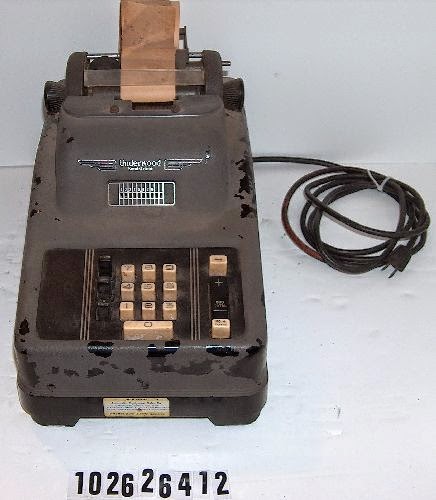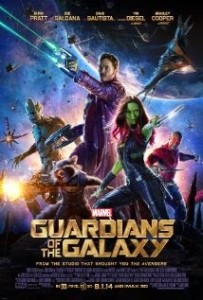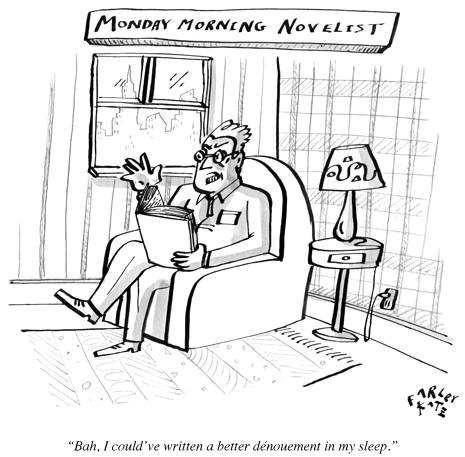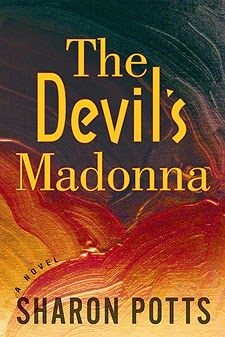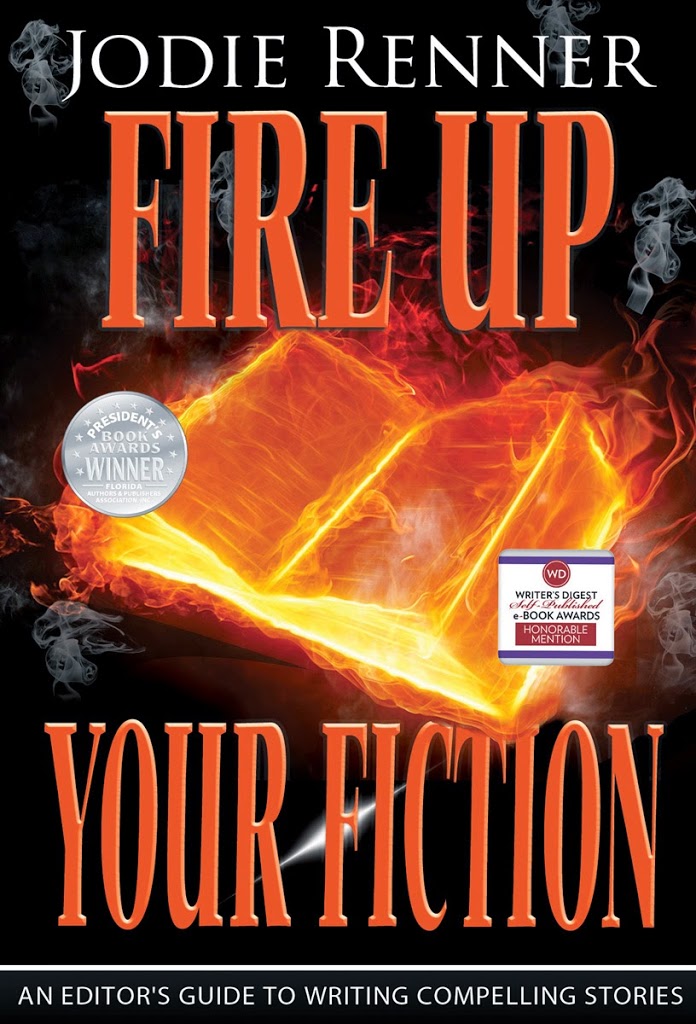These tips will keep you out of the goo.
Monthly Archives: August 2014
Adding Machines and Libraries
Reader Friday: Snippets, Please!
Thursday’s First Page Critique
I’m filling in for Jordan today and we have another first page critique. This one’s entitled ‘Discovering Aberration’ – my comments follow.
DISCOVERING ABERRATION
I stood before the lectern in the Grand Literature Hall clutching my mangled copy of Draganvich’s The Lament of the Beggar. Though I had the intention of reading a selection aloud, I found myself fixated on a note in the margin which caught my eye and caused me to pause. “I’m always homesick for the journey,” I had once written in ink speckled script, adding almost as an afterthought, “…no matter what it might hold.”
“No matter what it might hold,” I whispered absorbed in remembering.
It had been two years since my extended journey to the orient. Two years spent writing and searching for employment, poor as Job’s turkey. And then, six months ago everything simply seemed to happen on its own accord. The Oriental Adventure, the book I had written and published under the name Franklin P. Fitzgerald became a rousing success. I was honored by the Tetraelly Academy with a grant and a residency on condition that I teach. And then as suddenly as it all began I found myself, for lack of a better phrase, fantastically bored. Not weary, nor depressed, nor any other such nonsense. Bored, standing in front of a crowd of affluent students (any one of whom had inherited more than I had earned in my entire life), fumbling though the teaching process, and now lost in thought, remembering.
“Professor Fitzgerald?” came a voice from the young lady in the front row. “Professor, are you not feeling well?”
“Hm,” the sound carried almost unnaturally clear through the vast auditorium and over the sea of students. Even those in the back sitting elbow to elbow could hear the slightest of whispers, such were the acoustics. I looked at the book in my hands to the fog of young and wealthy sons and daughters, most wearing ridiculous collections of posed taxidermy. As was the growing fashion among the young and wealthy, they wore the corpses of beasts of the air upon their hats or beasts of the land slung over their shoulders, but never both. Strange, to have all these eyes on me, the eyes of the students and the threaded eyes of the animals.
It still holds true, thought I. Homesick for the journey once more, eh old boy. I fumbled to find myself again, seeking out my originally intended selection. “Yes,” I replied to the girl sitting directly before me. “I’m quite alright.”
MY COMMENTS
I have grouped my comments by heading, to make things a little clearer.
Setting? Genre?
Overall I had the sense from this first page that I was getting a lot of information I didn’t really need, and not enough of the information I did need. From the outset it felt like we were entering the fantasy realm (the Grand Literature Hall, Draganvich’s The Lament of the Beggar, Tetraelly Academy) and yet the reference to the orient and Job pulled me out of this and I was left wondering about what world and what time period I was supposed to be in. Was the main character a religious man? It sure sounded like he was about to give a theology lecture and his use of the expression ‘Job’s turkey’ made it sound 19th century – so I was a little confused from the outset as to whether this was fantasy or history (or both).
Nothing in this first page gave me much of a grounding for the world I was entering and, without this, I found it hard to get excited about the story. To be honest this first page left me wondering why I should care about Professor Fitzgerald, or his memories of his trip to the orient. I did like the idea of him being up on the lectern, suddenly gripped by memories of the past, and unable to present his intended lecture – but I needed a higher level of tension to become fully engaged and invested in the story from the outset.
Character?
I couldn’t really visualize Professor Fitzgerald. At first he sounded elderly, mulling over the past. Then it sounded like he was slightly younger and bored. Then he went back to sounding old again (particular when he thinks ‘eh old boy’). As a character he was too amorphous for me. I needed less details about the audience and more about him. I also don’t think a character who is merely bored (even if it is ‘fantastically’) generates a lot of narrative drive. I would prefer him to be haunted by his experiences in the orient and so when the memories return, they overwhelm him.
Redundancies?
So what makes it hard to critique this first page is that the details we do get don’t really seem drive the story forward. We get some background regarding Professor Fitzgerald’s journey to the orient but all we know is that he went poor, wrote a book that was a ‘rousing success’ and them ended up teaching. (As a side note why was the book ‘published under the name Franklin P. Fitzgerald’ – which makes it sound like this was an alias – when it appears that it is actually his name?) This information didn’t really compel me to care about Professor Fitzgerald.
Instead of piquing the reader’s interest with details of his journey to the orient, the author provides more details instead about the students. So we know they are affluent (this is repeated – we get told twice more that they are wealthy which is unnecessary repetition in the first page) and that they make strange taxidermic fashion statements. But even this makes it hard for me as a reader to visualize the world we’re in. Is it a historical setting in an alternative world? Or is it in our real world? Again, I’m left without any real sense of where the story is set in terms of time or place. I also found it strangely redundant to know that the students wear ‘corpses of the beasts of the air upon their heads or beasts of the land slung over their shoulders but never both’ – and are these beasts ones we would know or are they fantastical? I think the fashion provides plenty of scope to be intriguing but instead it seems stilted and too generalized. In a first page a reader wants to have the world evoked in a dramatic and sensory way.
Voice
So the author’s voice in this piece seems old fashioned and a little stifled at times, as if designed to evoke the past. This can work if used to good effect but at the moment the first page isn’t grounded enough in a vivid world/time period for this to be all that effective. Instead, this voice creates distance between the reader and the story.
Punctuation/POV issues
There is some lack of punctuation but, as it didn’t detract from the story, I’m not going to focus on this – except to point out that the internal monologue ‘eh old boy’ needed a question mark. When the professor is supposedly lost in his memories, staring at his book, it was also hard to understand how he knew that the voice was coming from the young lady in the front row.
Recommendations
I would recommend refocusing this first page on getting the reader intrigued about Professor Fitzgerald and what happened on his journey to the orient. I would ensure enough detail is given so the reader is well grounded in the world that he inhabits. I’d also do away with redundant details about the acoustics of the auditorium or the wealth of the students. The author needs to make it clear from the outset what kind of disturbance or event is going to provide the narrative drive to this story. Even the title ‘Discovering Aberration’ is ambiguous and I’d like to get some sense of where this story is headed…is it about species aberration? Does the plot turn darker and more ‘thriller-esque’ or is it going to be more of an alternate history or fantasy novel? It’s really hard to tell at the moment.
Finally, readers need a reason to turn the page and at the moment there isn’t enough happening to do this. Everything seems to hinge on the main character’s ‘ruminations’ which isn’t really enough (especially when they offer little in terms of drama).
So TKZers what feedback do you have?
Character Archetypes
Archetypes are recurrent themes found in works of literature and film. Recently I attended a talk by a nautical archaeologist (http://nancyjcohen.wordpress.com/2014/08/14/nautical-archaeology-for-writers/). While this professional is concerned with preserving underwater shipwrecks and their associated artifacts, treasure hunters seek to plunder these watery grave sites. Now pit two of these opposing people together as hero and heroine, and you have instant conflict.
Or take the Star Lord and the green-skinned girl in Guardians of the Galaxy. He’s a cocky womanizer. She’s a feminist warrior. Don’t you love the sparks that fly between them until they realize how much they care for each other? Here’s a list of other familiar archetypes.
AMNESIA: Is he/she married, a parent, a missing bride/groom, presumed dead? Did he kill someone? Did someone try to kill him? Is she a witness to a violent crime? Is he an undercover agent who got hurt by the bad guys? American Dreamer, The Bourne Identity
BRIDES: Marriage of convenience, fake fiancés, mail order bride, runaway bride/groom, green‑card, royal, shot-gun wedding, jilted, terms of the will, Vegas spur-of-the-moment wedding. Runaway Bride, Father of the Bride, Wedding Crashers, Sleepless in Seattle, What Happens in Vegas
CHILDREN: Abandoned, lost, adopted, biological, inherited, stolen, secret baby, true identity unknown, switched‑at‑birth, kids playing matchmaker for single parents. Home Alone
DISGUISE: Hidden or unknown identity, switching places: True Lies, The Prince and the Pauper, The Scarlet Pimpernel, Freaky Friday, The Princess Diaries, Arrow
FISH OUT OF WATER: Enchanted, City Slickers, Kate and Leopold, Outlander
MAKEOVER: The Princess Diaries, My Fair Lady
MISMATCHED COUPLES: Bad boy/Good girl, Cowboy/Lady, Pirate/Princess, Real Estate Developer/Preservationist, Wanderer/Homemaker, May/December, Womanizer/Feminist, Duke/Governess, Mentor/Protegé, Boss/Employee. Romeo & Juliet, Beauty and the Beast, Six Days Seven Nights, Guardians of the Galaxy
RAGS TO RICHES: Cinderella, Pretty Woman, Ever After
REUNION: Former lovers, estranged spouses, lost love, thwarted romance, divorced but still in love. Sweet Home Alabama
SECRET POWER: Harry Potter series, Superheroes like Superman and Spiderman
SINGLE PARENTS: Struggling unwed mothers, clueless divorced dads, inexperienced surrogate. Three Men and a Baby, Baby Boom
TWINS: Switched identities, mistaken identities, trading places to fool people and having the tables turned on them instead. Parent Trap, New York Minute
Now wouldn’t it be interesting to pick one of these for your suspense/thriller novel? That’s what I did for Warrior Lord, my latest action-packed romance with scifi/fantasy elements. Drift Lord warrior Magnor of the Tsuran must recover the fabled Book of Odin. Hidden in its text is information on a weapon to defeat his enemy. Magnor has received a tip that a clue to the whereabouts of this book can be found at the Viking Vegas Resort.
As soon as he steps inside the casino, he’s drawn to a woman playing blackjack. When he hears her mutter how she can use the cash from a contest for engaged couples as announced over the loudspeaker, he suggests they enter the competition even though they’ve just met. Before you can blink, they win and are married on live TV. Marriage of Convenience meets Lord of the Rings plus Star Wars. It was fun tossing this trope into my paranormal universe.
Think about the books on your shelves at home. Do you repeatedly buy the same types of stories? Does this tell you something about the plot devices that appeal to you? What other movies can you fit into the categories above?
Ten Things I Wish I Knew Then That I Know Now
“It is easy to be wise after the event.”
— Arthur Conan Doyle, The Complete Sherlock Holmes
5. Keep good notes, chronologies, timelines, dossiers. This is crucial if you are writing a series but you need to do it for any novel. If you don’t write things down, you will lose valuable time looking up stuff about your characters or plot. I have an old-fashioned loose-leaf binder in which I record vital stats for every character in every book. (And don’t think that cameo might not come back in a future book!) Here’s my friend SJ Rozan on the subject:
I wish I’d kept better notes. I have an eleven-book series that I keep leaving and coming back to, two standalones, and, as Sam Cabot, two paranormals in a new series. That’s a total of fifteen books. Plus about three dozen short stories. That means I’ve written about a million and a half words. It didn’t occur to me twenty years ago when I wrote the first book that I might lose track of, say, the names of Lydia Chin’s brothers’ wives. In fact I think I might have felt it was overweening, for me to think anything I did was important enough to keep notes on. Now I find myself rooting through my own work like a squirrel looking for nuts.
6. Don’t try to go it alone. You must network. You must find support. And not just from family but from like-minded writer souls. You need to share with others your problems about writers block, your despair over rejection, your happiness when something good happens. You need to know that your problems are not unique and that they can be overcome. I didn’t learn this until oh, about book three, when I finally started going to writers conferences. I could have learned so much from other writers! Here’s my friend Sharon Potts talking:
I had assumed when I started my first novel that writing was a solitary process and I spent my first year locked away in my garret drinking cheap wine and smoking Gauloises. Just kidding–the wine was expensive and I didn’t smoke. Then I discovered Mystery Writers of America and it was a real eye-opener. It was like dropping into a cabal where I was offered the secrets to getting published. But even better than that, by attending workshops and conferences, I learned how to improve my own writing and made friends who were instrumental in my success. I don’t regret the wine, but I sure wish I’d joined MWA sooner.
7. You must read. Not just for pleasure (although that is fine!) but with a cold analytical eye toward how other writers spin their magic. Read widely in your genre, but also outside it because that can make you braver. Read some bad books, too. You can learn from them and it can boost your confidence. But it’s better to read really great stuff that makes you want to stretch your own writer wings. Here’s my critique group buddy Neil Plakcy on this subject:
One of the most valuable things I learned in graduate school was to read like a writer — to be analytical about things like chapter length, pacing, cliffhangers, the balance between narrative and action, and so on. That when I see something I admire in another writer, I should analyze it to see how the effect was accomplished. I wish I’d learned that back in college, when I first studied creative writing.
8. Your publisher is not your friend. This sounds bitter but I don’t mean it to be. But I didn’t understand this at first. And even though writers today are smarter, I think many are a little naive, believing that once they sign a contract they will be “taking care of.” The fact is, publishers want to make money. If you can help them do that, you will have a fine and fruitful relationship. But if circumstances are such that your book does not sell sufficiently, you can be dropped. It has nothing to do with you personally. It may not have anything to do with the quality of your book. Publishing is a business. A business that is now challenged by market forces and going through a wild state of flux. Yes, you can have a good relationship with an editor. But if you want a friend, get a dog.
9. Your worst character traits will be amplified. It’s been said that when you get old, you become yourself but even more so. This is true of writers as well. Something happens to otherwise normal folks when they enter the creative fugue state of novel-writing. Maybe it’s because, unlike other jobs, we have no easy ways to gauge our success — no weekly paychecks, no performance reviews, no boss breathing down our necks. Writing is faith-based and lonely. So it tends to magnify whatever is strong — or weak — within us. Are you a procrastinator? Ha! Wait until you paint yourself into that plot corner. Are you a conflict-avoider? Well, being at the mercy of a publishing house is going to drive you nuts. Are you a tangled yarn-ball of self-doubt? That first bad Amazon review is going to have you in tears. Are you full of yourself? You will get a quick rep for being a panel-hog at writers conferences and no one will sit next to you at the bar. Learn where your fault lines are and work with them. Or get a good shrink.
10. You won’t get rich. This is a true story: Back in 1982, I read an article in Money magazine about housewives who were making tons of money writing Harlequin romances. (I swear I am not making this up but I think Money magazine was). I told my husband I was going to write a romance so I could quit my job and we could get rich. I wrote a novel called The Dancer and it got published out of the slush pile (see no. 1). My advance was $2500. I never made any royalties. I didn’t get to quit my day job. We didn’t get rich. But it did launch my career and though my original motive was shallow and stupid, I did come to realize I wanted to actually be a serious writer. I can’t say I still didn’t think about getting rich but I found out money wasn’t what motivated me. I discovered that writing was the one thing I really wanted to do, and that I had to give it my heart and soul. And after thirteen years, I can look back now and say that wasn’t such a bad lesson.
Hey, the mail just came, and guess what? I got a royalty check from Japan! It’s for $15.66. That’s a decent bottle of Pinot. In honor of my windfall, I will let my old friend Rod Stewart have the last word . Take it, Rodney!
I wish that I knew what I know now
When I was younger.
I wish that I knew what I know now
When I was stronger.
POV 101: Get into Your Protagonist’s Head and Stay There (for most of your story)
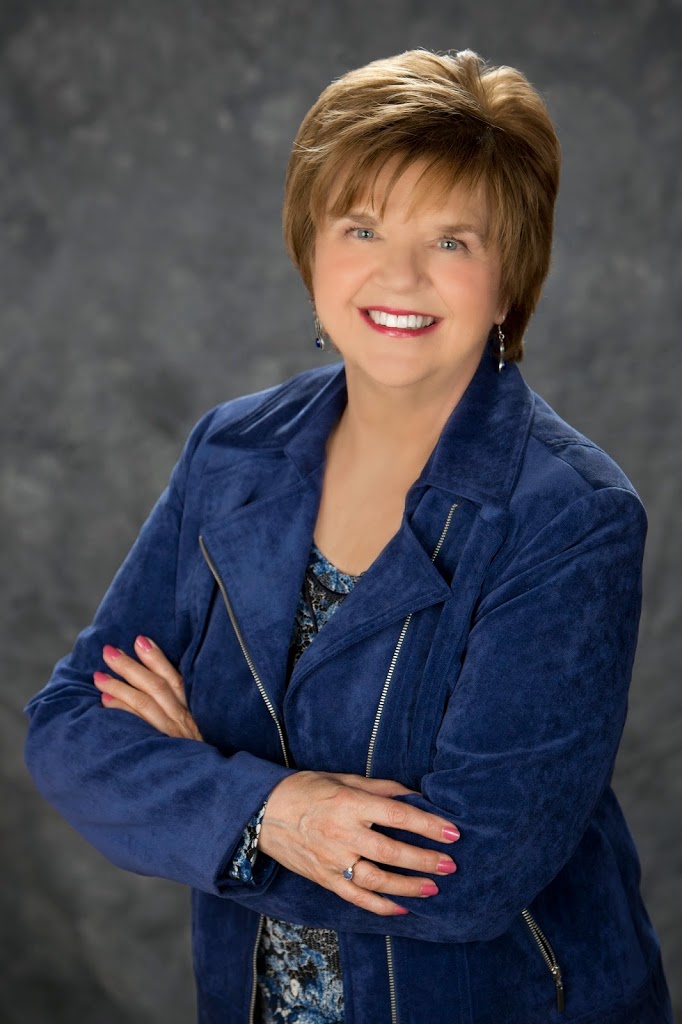 by Jodie Renner, editor & author @JodieRennerEd
by Jodie Renner, editor & author @JodieRennerEd
This is the first of a three-part series on point of view (POV) in fiction.
I’ve been editing fiction for years, and the most difficult concept for many of my aspiring author clients who write in third-person point of view (the most common POV in novels) is to portray their story world through the viewpoint / eyes / head of one character at a time, rather than hovering above them (omniscient POV) or ping-ponging back and forth between different characters’ viewpoints (head-hopping).
Except for omniscient POV (the author talking directly to the readers), point of view or POV simply refers to the character through whose perspective the story events are told. Most of today’s novels are written in third-person POV, with the main character referred to as “he” or
“she,” even though we’re seeing their world through their eyes. First-person POV, where the main character is telling their own story, using “I” and “me” seems to be gaining popularity, and is very common in YA (young adult) fiction.
This post is about using close third person or deep point of view to bring your main character to life for the readers. Ideally, we should only see, hear, smell, feel, and experience events as that character would – with no additional information provided “from above” by the author. This closeness helps your readers get to know your viewpoint character intimately, which makes them start worrying about him or her – and that keeps them turning the pages!
A hundred years ago, novels were often told from a distant authorial point of view, hovering over everything. That omniscient POV is no longer popular today (except for historical sagas), and for good reason: Readers want to experience the events of the story vicariously through the viewpoint character, to immerse themselves in her world, and they can only do that if they’re “inside her skin,” so to speak. They know/feel her inner thoughts, insecurities, hopes, and fears, so they bond with her quickly and are eager to find out what’s going to happen to her next and how she’s going to handle it.
As the late, great Jack M. Bickham said, “You’ll never have problems with the technique of viewpoint again if you simply follow this advice:
“Figure out whose story it is. Get inside that character—and stay there.”
It’s especially important to open your book in your protagonist’s point of view, and stay there for at least the first chapter. This gives the reader a chance to figure out quickly whose story this is, and get to know him fast and start identifying with him and rooting for him.
Years ago I edited a novel in which a 15-year-old girl is riding in a car with her mother, who’s driving, and her 11-year-old brother in the backseat. (I’ve changed the details a bit.) The book starts out in the point of view of the mom, who is worried about uprooting her two kids and moving across the country, away from their friends. So we start empathizing with the mother, thinking it’s her story.
Then suddenly we’re in the head of the teenage girl beside her, who is deeply resentful at her mom for tearing her away from her friends and is agonizing over what lies ahead. Then, all within the first page, we switch to the head of the 11-year-old boy, who’s excited about the new adventure and wishes his sister would lighten up and quit hassling the mom. We’re also in his visual POV – he looks at his sister’s ponytail and considers yanking it. Now we’re confused. Whose story is this, anyway? Who are we supposed to be most identifying with and bonding with? Readers want to know this right away, so they can sit back and relax and enjoy the ride.
It’s essential to start out the story in your protagonist’s POV, but it’s also smart to tell most of your story from your main character’s viewpoint – at least 70 percent of it. That gets the reader deeper and deeper into that person’s psyche, so they get more and more invested in what’s happening to her.
As Bickham explains, “I’m sure you realize why fiction is told from a viewpoint, a character inside the story. It’s because each of us lives our real life from a single viewpoint – our own – and none other, ever.”
Successful fiction writers want their story to be as convincing and lifelike as possible, so they write it like we experience real life: from one viewpoint (at a time) inside the action.
So if you want your lead character to come alive and matter to the reader, and your story to be compelling, it’s best to show most of the action from inside the head and heart of your protagonist. Of course, thrillers often jump to the POV of the villain, to add suspense, worry, intrigue and dimension. But give the bad guy his own scene, and make sure he’s not onstage more than the protagonist is! And many romances have two main protagonists, the hero and heroine, but one usually predominates – most often the heroine, so the largely female readership can identify with her. Just don’t be inside the head of both characters in one scene – too jarring and confusing!
Also, if there’s a scene with your protagonist and a minor character, don’t show the scene from the POV of the minor character, unless there’s a very good reason for it – it’s just too unnatural and jarring.
In POV 102, I discuss “head-hopping,” a sure sign of amateurish writing, with a trick for spotting this in your writing; and in POV 103, I’ll get into more detail on deep point of view, or close third-person POV.
By the way, I presented two writing craft workshops at a conference two weeks ago, “Engage Your Readers with Deep Point of View” and “Spark up Your Stories – Adding Tension, Suspense, & Intrigue.” Here’s the HANDOUT for the Deep POV one. The handout for the other one is there, too, as well as a list of writers’ conferences and book festivals through July 2015.
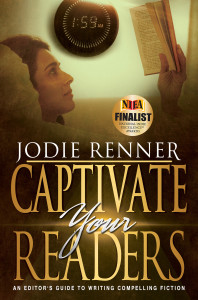 Jodie Renner is a freelance fiction editor and the award-winning author of three craft-of-writing guides in her series An Editor’s Guide to Writing Compelling Fiction: Captivate Your Readers, Fire up Your Fiction, and Writing a Killer Thriller. She has also published two clickable time-saving e-resources to date: Quick Clicks: Spelling List and Quick Clicks: Word Usage. You can find Jodie at www.JodieRenner.com, www.JodieRennerEditing.com, her blog, http://jodierennerediting.blogspot.com/, and on Facebook, Twitter, and Google+.
Jodie Renner is a freelance fiction editor and the award-winning author of three craft-of-writing guides in her series An Editor’s Guide to Writing Compelling Fiction: Captivate Your Readers, Fire up Your Fiction, and Writing a Killer Thriller. She has also published two clickable time-saving e-resources to date: Quick Clicks: Spelling List and Quick Clicks: Word Usage. You can find Jodie at www.JodieRenner.com, www.JodieRennerEditing.com, her blog, http://jodierennerediting.blogspot.com/, and on Facebook, Twitter, and Google+.
Even Writers Get the Blues
Recently, TKZ’s own Jordan Dane wrote about getting through the “slumps.” I wanted to add to that, because all writers are subject to the writing blues from time to time.
Does Hardship Improve Your Writing?
Reader Friday: What’s Your “Island Scene”?
A while back, Kris (PJ Parrish) wrote a great post in which she described writing as a process of creating “scene islands”, connected by “transition bridges”.
Think of the scene you’re currently working on. If you think of that scene as an island, what would you name that island? Story-wise, what important thing is happening in this scene?


